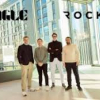CONTACT US
info@bidaiondo.com

Technological trends that are revolutionizing the travel sector in 2025

The travel sector is in constant evolution, driven by economic growth and the need to adapt to an increasingly digital traveller. In 2023, tourism accounted for 9.1% of global GDP and has continued to grow in 2024, with an uneven recovery in different regions. Technology plays a key role in this transformation, revolutionising the traveller experience and optimising the operations of companies in the sector. Artificial intelligence (AI), Big Data, virtual and augmented reality (VR/AR) and robotics are leading the digitalisation of the industry. These innovations not only improve the user experience, but also optimise business management, generating more efficient and personalised tourism. All of this has been analysed by the consultancy t2ó ONE in a new Industry report, where they offer key examples that demonstrate this new reality. The main technological trends that are transforming the sector Artificial Intelligence: The hyper-personalization of tourism AI is revolutionizing the tourism sector by enabling personalized experiences and improving operational efficiency. From chatbots to machine learning-based recommendation systems, AI facilitates decision-making and customer service. Smile.CX GAIA: This AI system from Covisian is revolutionizing query management in tourism. It processes large volumes of itinerary requests and automates the generation of travel proposals, reducing response times from days to minutes. Guidegeek: A WhatsApp-based travel assistant that analyzes queries in real time and offers personalized recommendations on destinations, budgets, and documents necessary for the trip. Virtual and Augmented Reality: Immersive travel before traveling Immersive technologies are transforming the way travelers choose their destinations and experience places before visiting them. Barceló Punta Umbría Beach Resort: Has implemented “The Magic Room”, a multi-user virtual reality experience in collaboration with Univrse, where visitors can explore interactive virtual environments. Domus Aurea in Rome: Through virtual reality tours, tourists can explore Nero’s majestic palace as it was in the 1st century, combining history and technology for a unique immersive experience. Big Data: Analysis to optimize strategies and improve the experience The use of Big Data in tourism allows for personalized services, optimized pricing strategies and anticipating market trends. BBVA and SECTUR in Mexico: They used transaction data to analyze tourist behavior and improve destination planning. Air Europa and its Data Academy: Launched a data analysis training program for employees, with the goal of turning the airline into a data-driven company and improving the customer experience. Robotics: Automation at the service of tourism Robotics is transforming tourism, from process automation to customer service, improving operational efficiency and reducing costs. Magic Costa Blanca: Implemented collaborative robots in its hotels for customer service, reducing waiting times and increasing operational efficiency by 600%. Bumerania Robotics: It is developing the first robotized hotel in Europe in Benidorm, where robots will take on operational tasks and improve the guest experience. The tourism sector is in an era of unprecedented digital transformation. The application of artificial intelligence, virtual reality, Big Data and robotics is redefining the traveler experience and optimizing business management. There is no doubt that innovation will continue to be key to growth and differentiation in the competitive world of tourism.
Last news
Google presenta la nueva “búsqueda fluida”: cuando la frontera entre AI Mode y AI Overviews se desvanece.

Meta supera los 3.500 millones de usuarios activos diarios en sus plataformas (+7%).

online trading systems.
 We show you the best way to market products and services online, through a professional service of installation, management and maintenance of your virtual store
We show you the best way to market products and services online, through a professional service of installation, management and maintenance of your virtual store
We program to suit you
 We help you achieve operational excellence in all your business processes, whether they are production, logistics, service or office processes. In addition, we assure you to maintain continuous improvement in your management.
We help you achieve operational excellence in all your business processes, whether they are production, logistics, service or office processes. In addition, we assure you to maintain continuous improvement in your management.
Bidaiondo Articles
What are strict account settings and why will your WhatsApp chats be (even more) secure now?

WhatsApp has announced the launch of a new update that will make your experience on the app more secure: Strict Account Settings. This feature is a direct response to the sophistication of current cyberattacks, which, although infrequent, represent a real threat to high-risk profiles such as journalists, public figures, and company executives. This launch comes just as the platform has been accused of allowing Meta to read WhatsApp chats. What ar...
Omnicom integrates TWBA and DDB into a single brand: this is what this advertising giant will be like.

Omnicom Advertising Spain has announced the integration of two of its flagship brands, DDB and TBWA, into a single entity that will operate under the TBWA Spain brand, self-described as “The Disruption Company.” This move is the first major development in the Spanish market following the global merger between the giants Omnicom Group and IPG Group, completed last November, which created the world’s largest media holding company....

ABOUT US
FILES

Welcome to Bidaiondo, dear user
BIDAIONDO SL, as the party responsible for the website www.bidaiondo.com, uses its own operating cookies and those of third parties of an analytical nature to allow the use of the website, analyze our services and show you information related to your preferences based on a profile drawn up from of your browsing habits (for example: pages visited). Please bear in mind that, if you do not activate some types of cookies, such as operational and analytical cookies, your experience of using this website may be affected. You can obtain more information and configure your preferences in the CONFIGURE option that appears below, you can reject cookies in the REJECT AND CLOSE option or accept all cookies and continue browsing in the ACCEPT AND CLOSE option.
So do you want to know more?
Data privacy seems important to you, and it is to us too. We store cookie data for 13 months. If you want to know more, you can visit our pages Privacy Policy y Cookies policy. Do you know what cookies are? Cookies are files that are used by virtually all websites. When browsing our page, they are installed in your browser or device to ensure that the website works correctly and store information about your visit. The data provided by cookies treat the user anonymously and in no case do they store personal information.
The data collected by the cookies we use are:
- Addresses IP
- References of visited pages
- References of downloaded files
- The website itself www.bidaiondo.com
- https://www.moz.com
- https://secure/europeanssl.eu

 Spanish
Spanish













